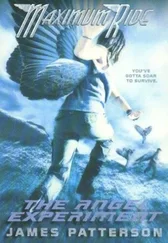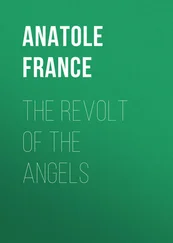Yukio Mishima - The Decay Of The Angel
Здесь есть возможность читать онлайн «Yukio Mishima - The Decay Of The Angel» весь текст электронной книги совершенно бесплатно (целиком полную версию без сокращений). В некоторых случаях можно слушать аудио, скачать через торрент в формате fb2 и присутствует краткое содержание. Год выпуска: 2010, Издательство: CCV Digital, Жанр: Старинная литература, на английском языке. Описание произведения, (предисловие) а так же отзывы посетителей доступны на портале библиотеки ЛибКат.
- Название:The Decay Of The Angel
- Автор:
- Издательство:CCV Digital
- Жанр:
- Год:2010
- ISBN:нет данных
- Рейтинг книги:5 / 5. Голосов: 1
-
Избранное:Добавить в избранное
- Отзывы:
-
Ваша оценка:
- 100
- 1
- 2
- 3
- 4
- 5
The Decay Of The Angel: краткое содержание, описание и аннотация
Предлагаем к чтению аннотацию, описание, краткое содержание или предисловие (зависит от того, что написал сам автор книги «The Decay Of The Angel»). Если вы не нашли необходимую информацию о книге — напишите в комментариях, мы постараемся отыскать её.
The Decay Of The Angel — читать онлайн бесплатно полную книгу (весь текст) целиком
Ниже представлен текст книги, разбитый по страницам. Система сохранения места последней прочитанной страницы, позволяет с удобством читать онлайн бесплатно книгу «The Decay Of The Angel», без необходимости каждый раз заново искать на чём Вы остановились. Поставьте закладку, и сможете в любой момент перейти на страницу, на которой закончили чтение.
Интервал:
Закладка:
“What are you doing with that thing? This time I’ll call the police. Last time I kept quiet because I didn’t want publicity, but it won’t be so easy for you this time.” Honda’s shoulders were quivering, and it had taken all his courage to speak.
“You have a stick, don’t you? Defend yourself with that.”
Honda had been looking forward to the crape myrtle in bloom, its blossoms shining against a trunk smooth like the white skin of a leper. But there was none. The garden had been made over, he knew, in the Alaya, the Storehouse, into a different garden. Gardens too must change. But in the instant that he so felt, uncontrollable anger came from another source. He cried out, and even as he cried out he was afraid.
The summer rains had ended and the heat had come after Kinué had moved to the cottage. The crape myrtle was in bloom. She disliked it, she said. It gave her a headache. She started saying that Honda had planted it there to drive her mad; and so Tōru cut it down after Honda’s departure for Hakoné. It was as simple as that.
Kinué herself was out of sight, far back in the dusky recesses of the cottage. Tōru offered Honda no explanation. There would be no advantage in it.
“I suppose you cut it down?” said Honda, more softly.
“That I did.” Tōru’s answer was cheerful.
“Why?”
“It was old and useless.” Tōru smiled a beautiful smile.
At such times Tōru would lower a thick glass door before his eyes. Glass that came down from the sky. Glass made from exactly the same material as the limpid morning sky. Honda knew that no shout, no word would reach Tōru’s ears. Tōru would only see false molars. Honda already had inorganic teeth. He was already beginning to die.
“I see. It makes no difference.”
All through the day Honda sat still in his room. He barely touched the food that the “maid” brought. He knew what she would report to Tōru.
“The old man’s being awful sulky.”
Perhaps the sufferings of the old man did in fact come to nothing more than sulkiness. Honda could see in them foolishness beyond defending. It had all been his own doing and not Tōru’s. There was no need for surprise at the change in Tōru. Honda had seen at the first glance the “evil” in the boy.
But at the moment he wanted to measure the depth of the wound inflicted on his self-respect by what he had asked for.
Honda disliked air-conditioning and was at an age when he feared stairs. He had a large twelve-mat room on the ground floor, looking out over the garden to the cottage. Built in the medieval shoin style, it was the oldest and gloomiest room in the house. Honda ranged four linen cushions in a row. He lay down and then sat up on his heels. With all the sliding doors pulled shut, he let the heat accumulate. Sometimes he would crawl to the table for a drink of water. It was as warm as in full sunlight.
Time went past along the indefinable line between waking and sleeping, like a nap at the ultimate end of anger and sadness. Even the pain in his hips would have been a distraction, but today there was none. He was only exhausted.
An unfathomable disaster seemed to be coming down on him, only made worse by the fact that it had precise, delicate gradations, and, like a subtly compounded potion, was having the predicted effect. Honda’s old age should have been free of vanity, ambition, honor, prestige, reason, and above all emotion. But it wanted cheer. Although he should have forgotten all feeling long ago, black irritation and anger continued to smolder like a bed of embers. Stirred, they sent off a reeking smoke.
There was autumn in the sunlight on the paper doors, but isolation contained no signs of movement, of change into something else, like the change of the seasons. All was stagnation. He could see them clearly in himself, anger and sadness that should not have been there, like puddles after a rain. The feeling born this morning was like a bed of leaves ten years old, and new each instant. All the unpleasant memories poured in upon him, but he could not, like a youth, say that his life was unhappy.
When the light at the window told him that evening was near, sexual desire stirred in the crouching Honda. It was not a sudden onset of desire, but rather something tepid that had gestated through hours of sadness and anger and coiled round his brain like a red worm.
The driver he had used over the years had retired, and his successor had been guilty of certain indiscretions. And so Honda had sold his automobile and now used rented cars. At ten he called a maid on the interphone and asked her to order a car. He took out a black summer suit and a gray sports shirt.
Tōru was out. The maids looked with curiosity upon the nocturnal departure of the eighty-year-old Honda.
When the car turned into the Meiji Gardens, Honda’s desire had become something like a faint attack of nausea. Here he was again, after twenty years.
But it was not sexual desire that had burned in him all through the ride.
His hands on his stick, more erect than usual, he had been muttering to himself: “I only have to endure it six months more. Just six months more. If he’s the real thing.”
That “if” made him tremble. If Tōru were to die in the six months before his twenty-first birthday, everything could be forgiven. Only the awareness of that birthday had made it possible for Honda to endure the arrogance. And if Tōru was counterfeit?
The thought of Tōru’s death had been a great comfort. In his humiliation he had concentrated upon Tōru’s death, in his heart already killed him. His heart was quiet, happiness welled up, his nose twitched with tolerance and pity when he saw death, like the sun through isinglass, beyond the violence and cruelty. He could be drunk on the open cruelty of what is called charity. Perhaps that was what he had found in the light upon the vast, empty Indian plain.
He had not yet detected in himself symptoms of a fatal illness. There was nothing to be alarmed about in his blood pressure or his heart. He was confident that if he lasted another half year he would outlive Tōru, perhaps by only a few days. What quiet, secure tears he would be able to shed! Before the foolish world, he would play the part of the tragic father deprived of the son he had come upon so late in life. He could not deny that there was pleasure in looking forward to Tōru’s death, in looking ahead to it with the quiet love, oozing sweet poison, of one who knows everything. Tōru’s violence, beguiling and lovable, seen through the time ahead as through a Mayfly’s wing. People do not love pets that will outlive them. A short life is a condition for love.
And perhaps Tōru was fretting at a prospect like a strange, unheard-of ship suddenly appearing on a horizon which he had been scanning for days. Perhaps a foretaste of death was moving him, irritating him. The possibility brought unbounded gentleness over Honda. He felt that he could love not only Tōru but the whole human race. He knew the nature of human love.
But if Tōru was counterfeit? If he was to live on and on, and Honda, unable to keep up with him, to waste away?
The roots of the strangling desire within him were in the uncertainty. If he was to die first, then he could not refuse the basest of desires. He might all along have been destined to die in humiliation and miscalculation. The miscalculation about Tōru may itself have been the trap laid by Honda’s destiny. If a person like Honda had a destiny.
The fact that Tōru’s awareness was too much like his own had long been a seed of disquiet. Perhaps Tōru had read everything. Perhaps Tōru knew that he would live a long life, and, reading the determined malice in the practical education given him by an old man confident of his early death, had plotted his revenge.
Читать дальшеИнтервал:
Закладка:
Похожие книги на «The Decay Of The Angel»
Представляем Вашему вниманию похожие книги на «The Decay Of The Angel» списком для выбора. Мы отобрали схожую по названию и смыслу литературу в надежде предоставить читателям больше вариантов отыскать новые, интересные, ещё непрочитанные произведения.
Обсуждение, отзывы о книге «The Decay Of The Angel» и просто собственные мнения читателей. Оставьте ваши комментарии, напишите, что Вы думаете о произведении, его смысле или главных героях. Укажите что конкретно понравилось, а что нет, и почему Вы так считаете.











